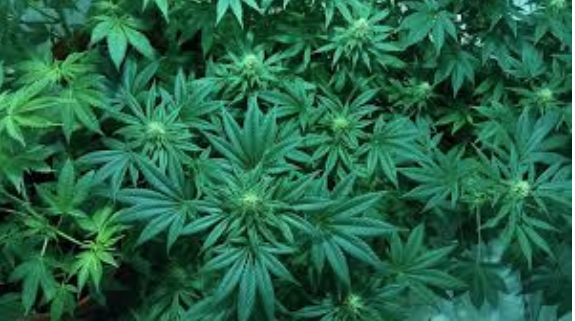Police Make More Pot Arrests than all Violent Crimes Combined

There are 1.25 million arrests made each year for marijuana possession
It should be no surprise to anyone living in the US in recent years that marijuana is becoming increasingly prevalent in societies across the country. Many see it as a harmless substance, arguing that many legal substances like alcohol and cigarettes are far more addictive. Others would argue that the drug is addictive, can lead to further drug use, and leads to an overall lazy society. Regardless of one’s stance, there’s no arguing the overwhelming amount of arrests made under the possession of marijuana.
In fact, there are about 1.25 million arrests a year for marijuana alone, more arrests than all violent crimes combined.
This is an overwhelming amount of arrests for marijuana use. It isn’t as surprising as many would think, though, as 49% of Americans have admitted to using marijuana at least once. The punishments for drug possession in America are harsh enough, especially with habitual offender punishments. In Texas, about 78% of felony drug possession charges that resulted in incarceration came from the possession of under a gram of the substance. Currently more than 100 people in Texas have life sentences in prison for habitual offender charges, many of whom were incarcerated with less than 1 gram. That’s roughly the mass of a stick of gum.
Though some people still wonder how the police make so many arrests as a result of marijuana possession, especially given the harsh punishments for doing so, some of these harsh restrictions are the result of issues within the DEA.
For years, the DEA has been “fighting” the War on Drugs in America, with their mission statement to “reduce the availability of illicit controlled substances on the domestic and international markets.” Despite the noble cause they seem to support, their efforts have mostly been in vain, as today drug use is more common among youths aged 12 and older than in the 1980’s. “It’s been 45 years since the War on Drugs was declared and it hasn’t been a success,” lead author Tess Borden of the Human Rights Watch said in an interview. “Rates of drug use are not down. Drug dependency has not stopped. Every 25 seconds we’re arresting someone for drug use.”
So where has the DEA been during this War on Drugs? Well, the answer is simply that the War on Drugs is what fuels the DEA, and increases its budget annually. And across the US, they’ve since exploited marijuana the most.
The DEA has a particular interest in marijuana among other things for one large reason: money. Despite marijuana’s tame nature, being far less addictive than alcohol or cigarettes, it is listed as a Schedule 1 drug to the DEA, meaning it is a top priority drug to contain. This ranks on the same scale as heroin, and ranks higher than meth, two drugs that can be very damaging and lethal. This is because without the exaggeration of marijuana’s prevalence in the US- as it is the most commonly abused drug in the country- the DEA would have to rely on the control of other drugs to meet their high budget standards- something that is virtually impossible without the overhype of pot.
Not to mention that the DEA rakes in about 3.9 billion dollars annually- 27 million dollars in just marijuana forfeitures. Some of these forfeitures are made on the grounds of mere “suspicion,” like one man Joseph Rivers, who had his life savings of $16,000 confiscated after a DEA officer seized it on a train because the $16,000 was in cash. Rivers was never convicted of a crime, possessing nothing but the money, but under the DEA forfeiture program, it was “justified” that the money be taken. Rivers could have sued, but that would prove costly, especially against the DEA.
The DEA has pushed marijuana to the top of their list of priorities. Aware that marijuana is relatively harmless – a substance less criminal than alcohol or cigarettes – they’ve toiled with its appearance to make it look more criminal than it is. With recent polls that have shown that 60% of Americans favor the legalization of marijuana, it is only a matter of time before the DEA is called out for its actions.

Jeffrey Witte • Nov 28, 2016 at 9:38 am
While I don’t support the legalization or usage of marijuana like most Americans, I do agree that the DEA has gone too far. As mentioned near the end of the article, a DEA officer seized approximately $16,000 from what turned out to be an innocent man. I say seized, but it was more like the officer, and therefore the DEA, STOLE that money. Regardless of the policies of the agency, Mr. Joseph Rivers was never convicted of a single crime related to the incident, so the truth of the matter is that this government agency committed grand theft/grand larceny against this poor civilian. Furthermore, the article mentions how they (the DEA) are exaggerating the effects of marijuana, just so they could make themselves some money. All of this just goes to show how selfish and corrupt the government can be.
Matthew DeBoer • Oct 28, 2016 at 1:48 pm
This is a very interesting article. I think this issue needs to be solved soon son so that it does not become a bigger issue. I did not know that 1.25 million people get arrested each year because of this drug and that 49% of the people admit to using it.
Anonymous • Oct 26, 2016 at 8:37 pm
The war on drugs is America’s greatest failure of recent years and this article perfectly highlights the abhorrent travesties committed in the “fight.” Great article